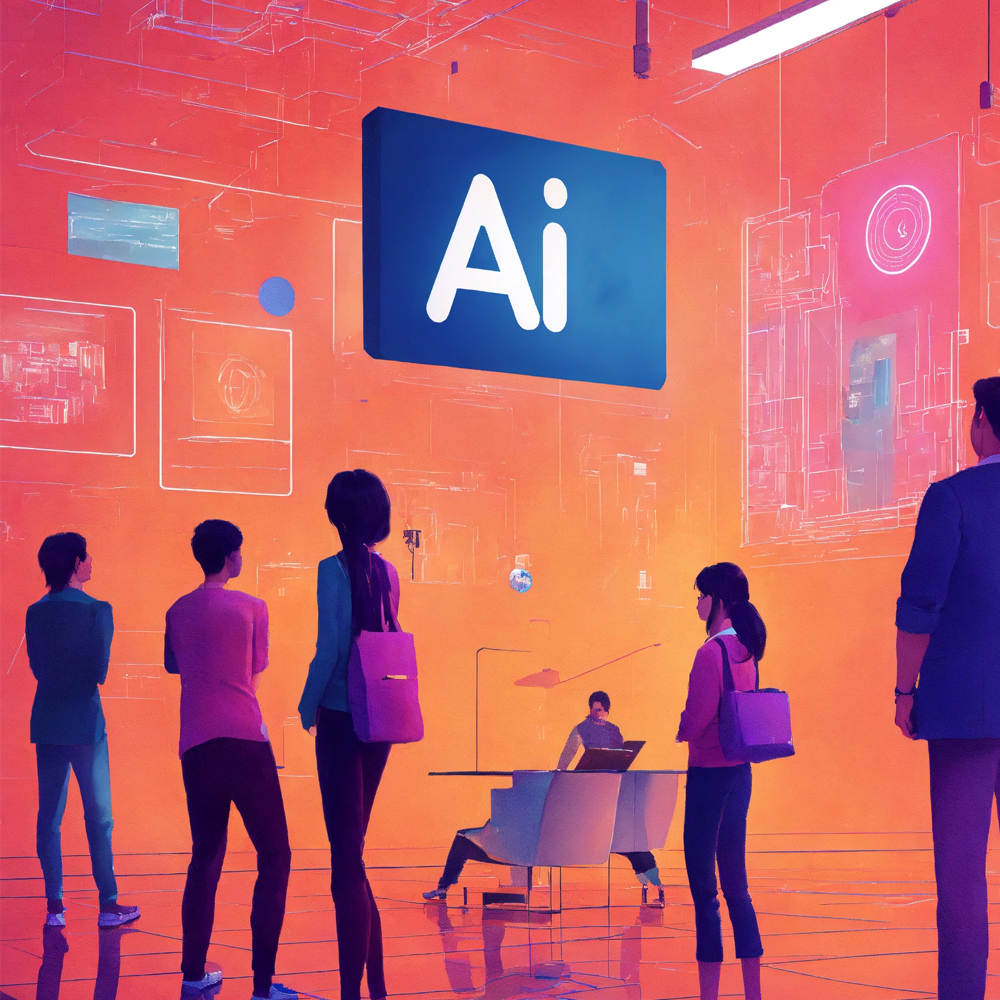The website is currently being updated.

Artificial Intelligence (AI) is revolutionizing various aspects of our lives, and one area where it's making a profound impact is education. In today's digitally driven world, AI is becoming an essential tool for students and educators alike. From personalized learning experiences to administrative efficiency, AI is transforming education in numerous ways. In this article, we'll explore the importance of AI for students in educational activities.
Personalized Learning
One of the significant benefits of AI in education is the ability to provide personalized learning experiences. AI systems can analyze a student's learning style, pace, and strengths and weaknesses to tailor educational content accordingly. This level of customization ensures that students receive the right level of challenge and support, making learning more efficient and effective.
AI-powered learning platforms can recommend specificre sources, adapt the difficulty of questions, and even provide real-time feedback on assignments. This personalized approach helps students stay engaged and motivated, ultimately leading to better academic outcomes.
Improved Accessibility
AI technologies have the potential to enhance accessibility in education. For students with disabilities, AI can provide tools such as speech recognition software, text-to-speech applications, and adaptive learning platforms that make learning more accessible. These technologies level the playing field and enable all students to participate fully in educational activities.
Additionally, AI can translate content into multiple languages, making education more accessible to students from diverse linguistic backgrounds. This inclusivity is crucial in creating a more equitable educational system.
Intelligent Tutoring Systems
Intelligent tutoring systems (ITS) powered by AI offer students personalized support outside of the classroom. These systems can provide step-by-step guidance, answer questions, and offer explanations when students face difficulties with their coursework. ITSs adapt to a student's progress and adjust the difficulty of tasks, ensuring that learning remains challenging but not overwhelming.
The availability of intelligent tutoring systems means that students can access additional help and resources 24/7, which can be particularly valuable for students who need extra assistance or prefer to learn at their own pace.
Enhanced Administrative Efficiency
AI streamlines administrative tasks in educational institutions,allowing educators to focus more on teaching and students to spend more time learning. AI-driven administrative systems can handle tasks like scheduling,grading, and record-keeping with greater speed and accuracy than manual processes.
By automating these administrative tasks, AI helps reduce the burden on educators and administrative staff, creating a more efficient and organized educational environment.
Analyzing Student Performance
AI-powered analytics tools are essential for educators to gain insights into student performance. These systems can analyze vast amounts of data, identifying trends, strengths, and areas of improvement for individual students or entire classes. Educators can use this information to adapt their teaching methods and provide targeted support to struggling students.
Furthermore, AI can predict student outcomes, helping educators intervene early when a student shows signs of falling behind. Earlyintervention can prevent students from falling further behind and improve over all retention rates.
Learning Analytics
Learning analytics, a subset of AI, involves tracking and analyzing students' digital interactions with educational content. By monitoring how students engage with online materials, AI systems can identify which resources are most effective and where students might be facing challenges.
Educators can then use this information to make data-driven decisions about curriculum design, resource allocation, and teaching strategies. Learning analytics can help institutions continuously improve their educational offerings.
Customized Content Creation
AI can generate customized educational content, including quizzes, assignments, and study materials. For instance, AI-powered contentgenerators can create practice quizzes tailored to the topics students need to review. This feature is especially helpful for students preparing for exams orlooking for supplementary materials to reinforce their learning.
Moreover, AI-driven content creation can help educators save time by automating the development of instructional materials, allowing them to focus on delivering high-quality teaching.
Conclusion
The importance of AI in education cannot be overstated.AI-driven technologies offer students personalized learning experiences, improve accessibility, and provide invaluable support through intelligent tutoring systems. Additionally, AI enhances administrative efficiency, analyzes student performance, and facilitates the creation of customized educational content.
In an era where technology continues to advance rapidly,integrating AI into education is not just beneficial but necessary to prepare students for the challenges of the future. As AI technologies continue to evolve, they will play an increasingly vital role in shaping the education all and scape, ensuring that students have access to the best possible learning experiences.
#AiEducation #EdTech ArtificialIntelligence#FutureofEducation #SchoolTechnology #DigitalLearning #PersonalizedLearning #EducationInnovation #StudentEngagement #TechinSchools #LearningAnalytics#AIForStudents #SmartClassrooms #EducationalAI #21stCenturySkills #EduTechTools#AIEd #OnlineLearning #DigitalClassroom #EducationTransformation #ShardaVidyaMandir#Bhopal
Kindly visit our website at www.svmbhopal.net or contact our Admission helpdesk at 0755-2696951
Get News, Updates, Newsletter, Stories and More


